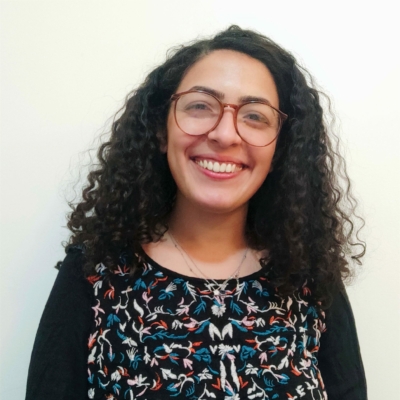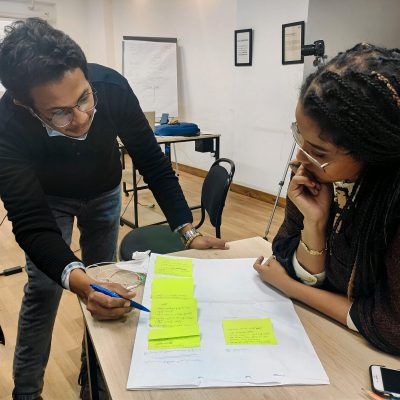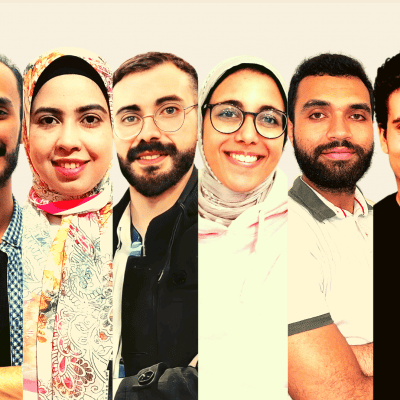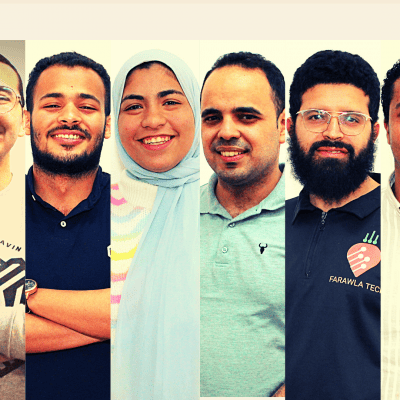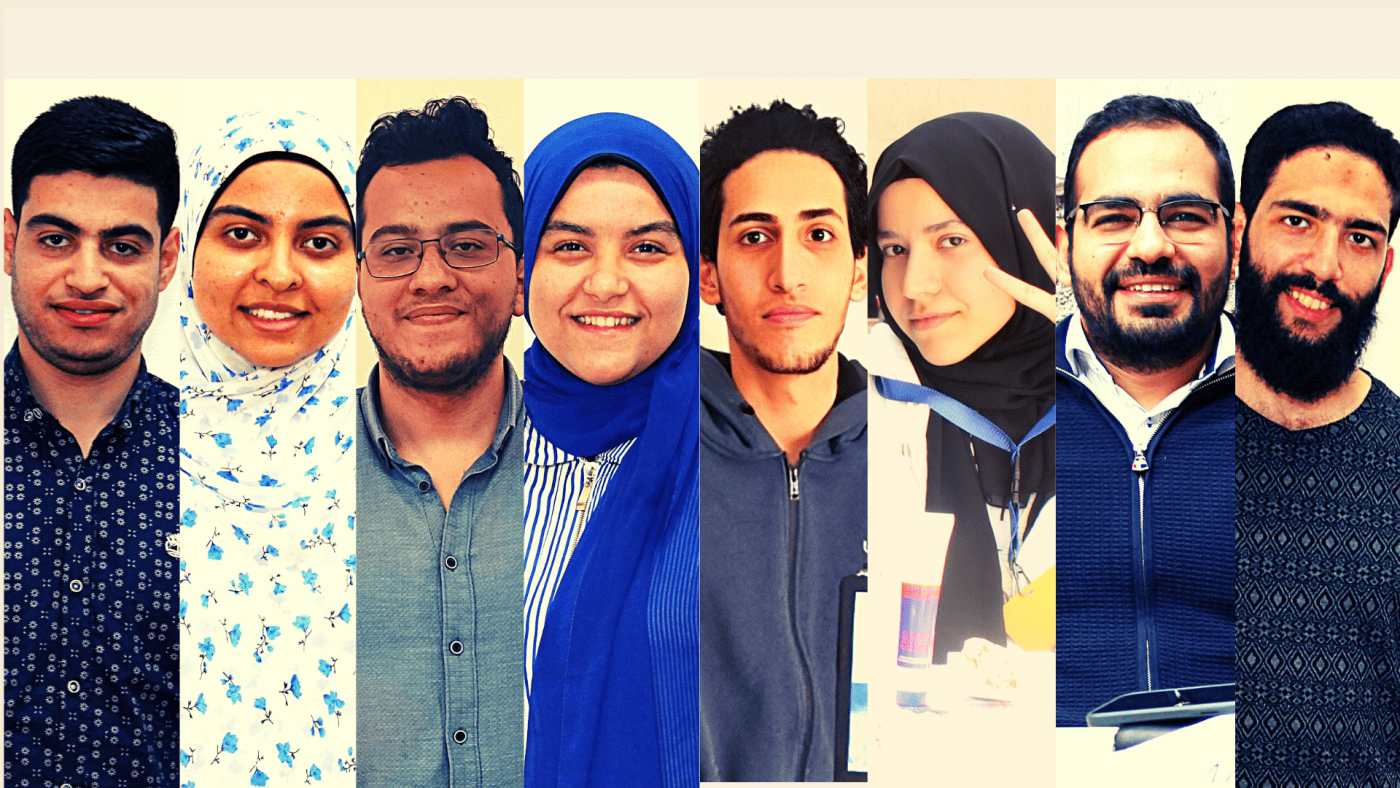
MADE to empower young entrepreneurs in Egypt: Driving innovation for sustainable food systems
What comes to your mind when you hear the word ‘food’? A long table of delicious meals, maybe fruits and vegetables, or perhaps news scenes of skeletal children in arid lands? Whatever you perceive it, the simplest fact remains that food is a fundamental human need, and its security is critical for ensuring the quality of life.
As of May 2023, the World Food Programme published a report on the global food crises, stating that over 250 million people worldwide face acute hunger and food shortages. The causes range from climate change to pandemic outbreaks, wars, conflicts, trade restrictions, and economic shocks. International organizations, local governments, and civil societies have been trying to overcome these causes over the past few years. Entrepreneurs have also been on the jump with initiatives and solutions aiming to secure sustainable food systems for their communities worldwide.
Egyptian youth are sparking hope by tackling food insecurity
In spring 2023, we had the chance to meet some of these entrepreneurs as we launched the second edition of the Manufacturing Advancement and Development in Egypt (MADE) program. In its food track, the program had over 30 teams of university students and recent graduates participating in the idea competition after passing a selection process of over 70 applications.
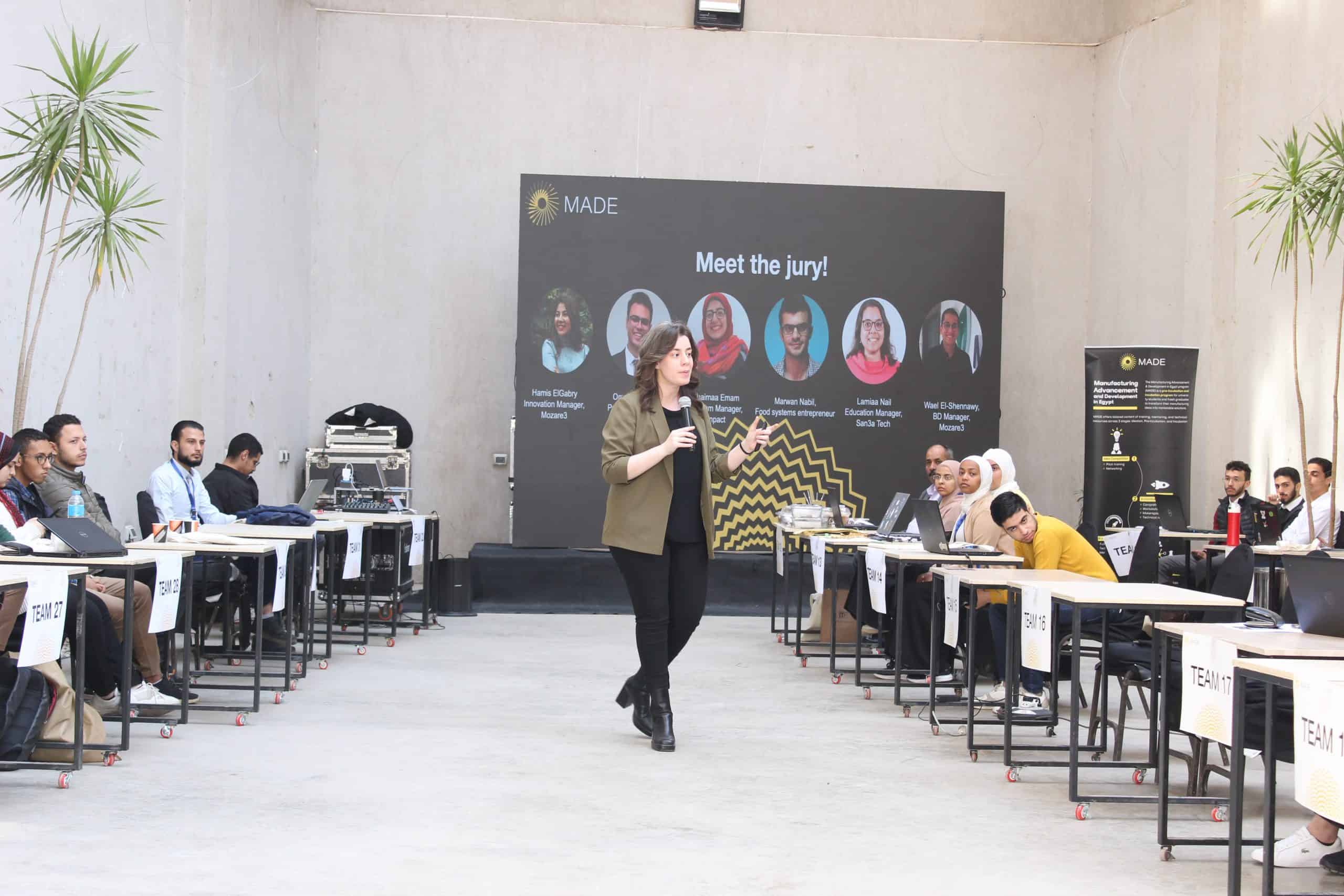
During the competition, each team pitched their innovative idea to a jury of manufacturing and business experts, with a focus on providing a sustainable solution for food production and packaging in Egypt. Based on the idea’s innovation level, feasibility, and scalability, the jury selected the top eight teams to advance to the program’s second phase, three months of pre-incubation.
“Most of the participating teams showed a solid understanding of the market – their solutions are realistic and boast leadership qualities, with a close focus on the market demands,” says jury member Hamis El Gabry, Innovation Manager at Mozare3
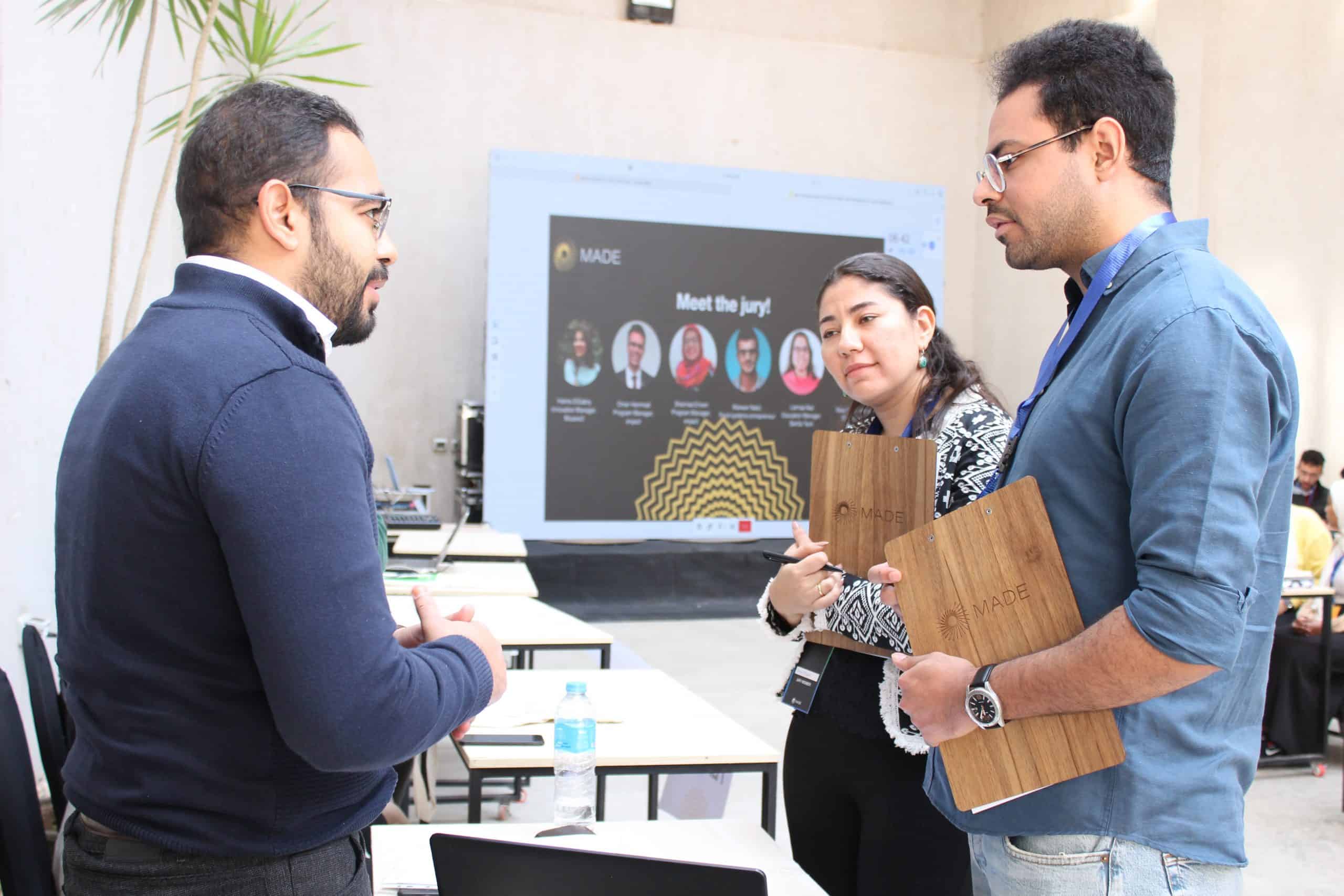
The agribusiness sector has a significant economic share in Egypt. Businesses like Mozare3 took over the mission of shaping this sector by providing intelligent and user-friendly solutions for the agricultural market’s stakeholders. However, the sector and the country’s whole farming industry still face complex challenges, showing an urge to take innovative actions now.
Why innovation is crucial for Egypt’s food production realm
Since the dawn of civilization, Egyptians have always lived centralized on a green arable strip – from the Delta, flocking along the Nile River to Aswan – where most of Egypt’s fertile soils exist, representing about 5% of the country’s total land. Year after year, challenges like soil erosion and land degradation have been altering the scene, not only diminishing the verdant areas but also reducing the quality of food produced – all due to harmful farming practices, water misuse, and climate change.
But how complicated is the situation today?
Agriculture already plays a pivotal role in Egypt’s economic growth and is a major source of food supply for its people. According to the Egyptian 2022 commercial guide, 28% of the national workforce accounts for the agricultural sector, and around 11% of its gross domestic product comes from farming. Being interdependent with the manufacturing sector, agricultural inputs like cereals, fruits, and vegetables are crucial for industrial food production. However, Egypt’s agricultural output has been struggling for many years to cover the rising food demand of its over 100 million population.
On the other hand, as stated by the UN’s Food and Agriculture Organization (FAO) report, Egypt loses 50% of its vegetable and fruit produce every year, 30% of wheat and milk, and 40% of fish. Complicating the situation further, the country, like many other regions worldwide, already suffers from poor management of food waste and crop residue – a massive contributor to global warming as a primary source of greenhouse gas emissions.
Towards sustainability in Egypt by the minds and hands of youth
From intelligent farming technologies and food waste management to nutritious food production and sustainable packaging, the participants’ ideas in MADE’s food track have shown the capability of solving Egypt’s pressing food challenges that can even forge a driving force toward zero hunger. And to turn these ideas into viable solutions, MADE program supports them with the guidance and resources they need along their journey.
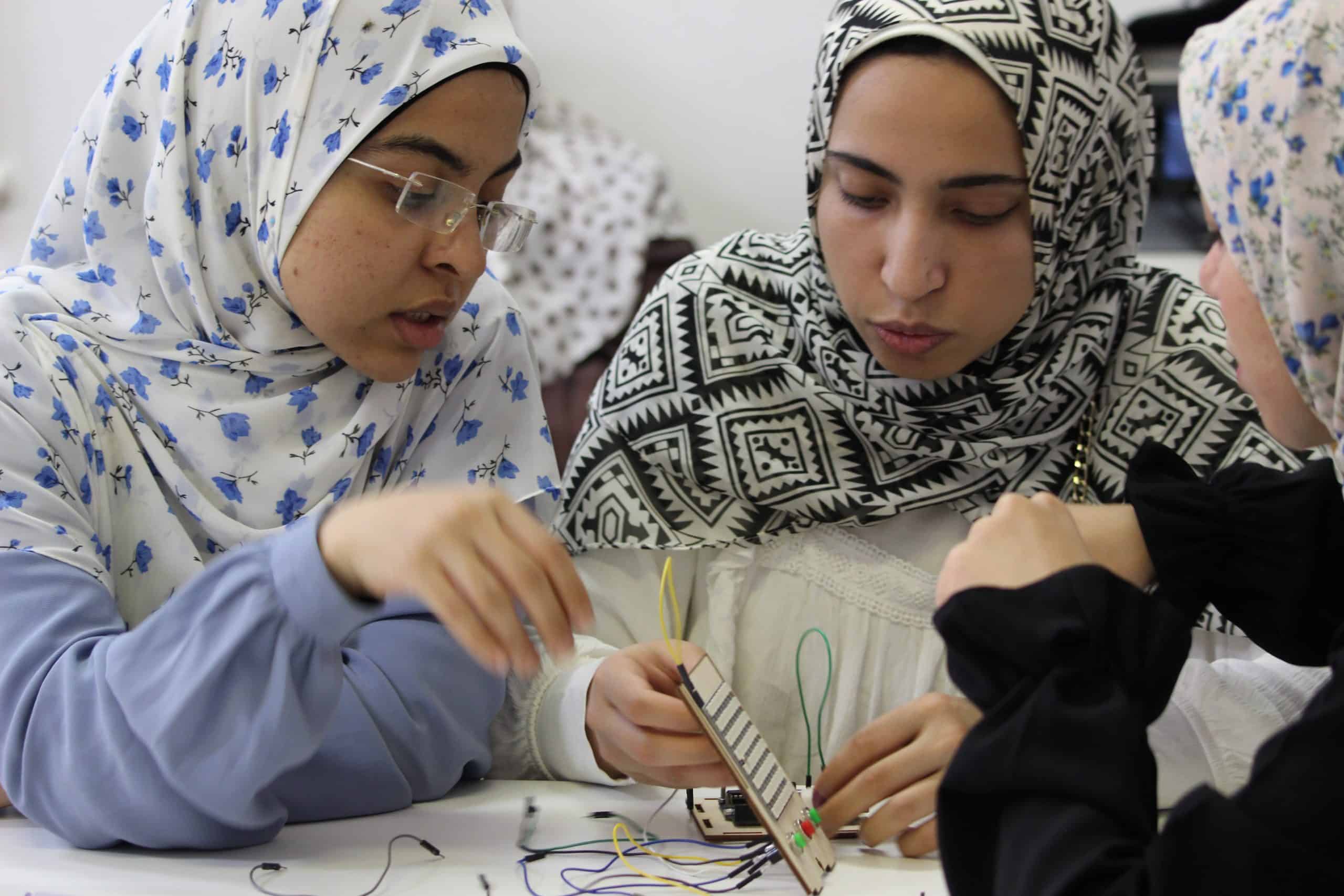
In the meantime, as part of the three-month pre-incubation phase, the top eight teams of MADE’s food track are receiving comprehensive training, along with access to maker spaces and workstations. Experts from MADE’s technical partner, Fab Lab Egypt, also support them with weekly technical application coaching sessions. Each team now aims to develop a proof of concept and prototype their idea by June 2023, in order to present this progress to a jury of experts on the pitch day, in which three teams will be selected to advance to the six-month incubation, which is the final stage of the program.
Empowering young entrepreneurs to shape the future
Implemented in cooperation with GIZ Egypt, MADE program aims to empower youth to innovate in Egypt’s manufacturing sector, with an overarching goal: realizing the sustainability nexus – energy, water, and food. Why youth? Because youth have been the most active agents for change in all eras. Nowadays, in Egypt, they are fully aware of the global challenges that threaten our daily life—and they can solve them; through MADE, we have witnessed that closely.
In September 2022, we launched MADE’s first edition with a focus on tackling industrial energy challenges. And due to the interlinking nature of water scarcity and food security challenges, the second edition has launched with two cohorts running simultaneously in the Water and Food tracks. If you are interested in getting involved and supporting the program as a mentor, expert, or partner, you can fill out this form, and the MADE team will be reaching out to you.
For now, get to know MADE’s Idea Competition winners, who made it to the Pre-incubation phase of the food track:
Ahmed Sami, team lead of Biri
Ahmed Sami is a student in the mechanical department of the Faculty of Engineering, at Cairo University. He holds the maker and the advanced maker diploma and is interested in digital fabrication, project management, supply chain, robotics, programming, and mechanical design. Currently, he is part of the supply chain group in the Shell eco-racing team at Cairo University. He is also the director of the project management section at Enactus Modern Academy.
Omar Zaghloul, team lead of AlProtein
Omar Zaghloul is a passionate entrepreneur and drug designer. With his interdisciplinary background in the pharma industry, he founded B-MARS, a biomedical research NGO, during his drug design studies at Zewail City, where he was also involved in student activities. Omar’s professional journey began at Pharco Pharmaceuticals as an R&D intern and junior business developer before he transitioned to manage Zewail City’s Deep-Tech Incubation Program in 2020. In addition to tutoring at several entrepreneurial foundations, he has served as an innovation management associate at consulting firms, where he works with entrepreneurs and business owners across the UK, Egypt, Holland, Germany, Belgium, UAE, and Oman.
Mariam Salem, team lead of Bees-Out
Mariam Salem, a previously International Baccalaureate student, is currently a senior at Alexandria Faculty of Medicine. From a young age, her perpetual yearning for knowledge and development allowed her to take on any challenge as a learning experience. As a health-conscious individual, she noticed that health is not a core goal in the food industry compared to ease. Her research allowed her to realize the effect of aspects considered ‘minor,’ like packaging and storage, on our food quality and, hence, negatively impacting our health. Ever since, Mariam has been taking on the challenge of developing the food track by innovating affordable solutions that can preserve food freshness and quality and, therefore, health.
Menna Ghanem, team lead of Valley Dates
Menna graduated from the Faculty of Agriculture at New Valley University. She is interested in research and development, especially regarding food processing and date manufacturing. She worked at the Research Center of the Food Science and Technology Department in the New Valley governorate and is pursuing her master’s in the same specialty. In addition to her work, Menna participated in several training programs on food processing, which helped her develop competitive products. These products can be made from some non-economic dates that are neglected and improperly used. That’s to improve the added value of these dates and bring new food products into the industry, solving the growing food gaps worldwide.
Ahmed Abolmagd, team lead of RFR
Ahmed holds a mechanical engineering background with a growing career in business. He developed over five years of experience in sales and business development by combining engineering and business knowledge. Ahmed worked in different corporates where he had the opportunity to support the business growth of customers and stakeholders with the best solutions – and that has sparked the idea of keeping the Egyptian market with high-quality, locally manufactured products.
Marwa Mohamed Hussain, team lead of Papero
Marwa Mohamed Hussain is a finance and investment management student at Cairo University. She started exploring entrepreneurship three years ago after joining several student activities, where she received a scholarship in Spain to tap into the field. Following that, Marwa enrolled herself in business incubators and worked on advancing her project. Then she shifted her efforts to establish a student activity that supports the definition of entrepreneurship for first and second-year students. Currently, she trains a group of students who teach these students. Marwa also worked for several years in the sales field before joining the university. All the skills she collected over these years qualified her to manage her team for the Papero project. She was recognized and awarded as the ideal student, Marwa with her team won first place in an entrepreneurship competition at their university level.
Ahmed Sherif, team lead of Handfarmer
Ahmed graduated from the Faculty of applied medical science with a specialty in biomedical equipment. Since 2017, he has explored the field of electronics and embedded software and hardware systems and delved into self-learning through online courses before joining a full-fledged program provided by the National Telecom Leadership, tapping into embedded c and AVR microcontrollers. Ahmed also joined classes about entrepreneurship, management, and leadership. He dove deep into exploring the challenges faced by farmers in Egypt. That’s why he came up with his idea Handfarmer after researching the market to identify the gaps. In 2023, Ahmed won the Motivational Award from the Startup Power Competition, valued at 30k EGP.
Khaled Ali, team lead of Zadio
Kahled holds a Bachelor’s degree in Law from the English Department of Assiut University. His passion for advocating for human rights led him to volunteer in various organizations, including local NGOs and international charities. Kahled developed a strong interest in SDGs and environmental issues through his studies and volunteer work. With his project Zadio, he today defends the environment, gearing towards preserving biodiversity and ensuring food security by creating environment-friendly alternatives to the conventional products that farmers use in agriculture and poultry framing.
